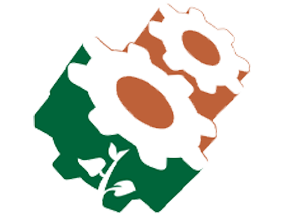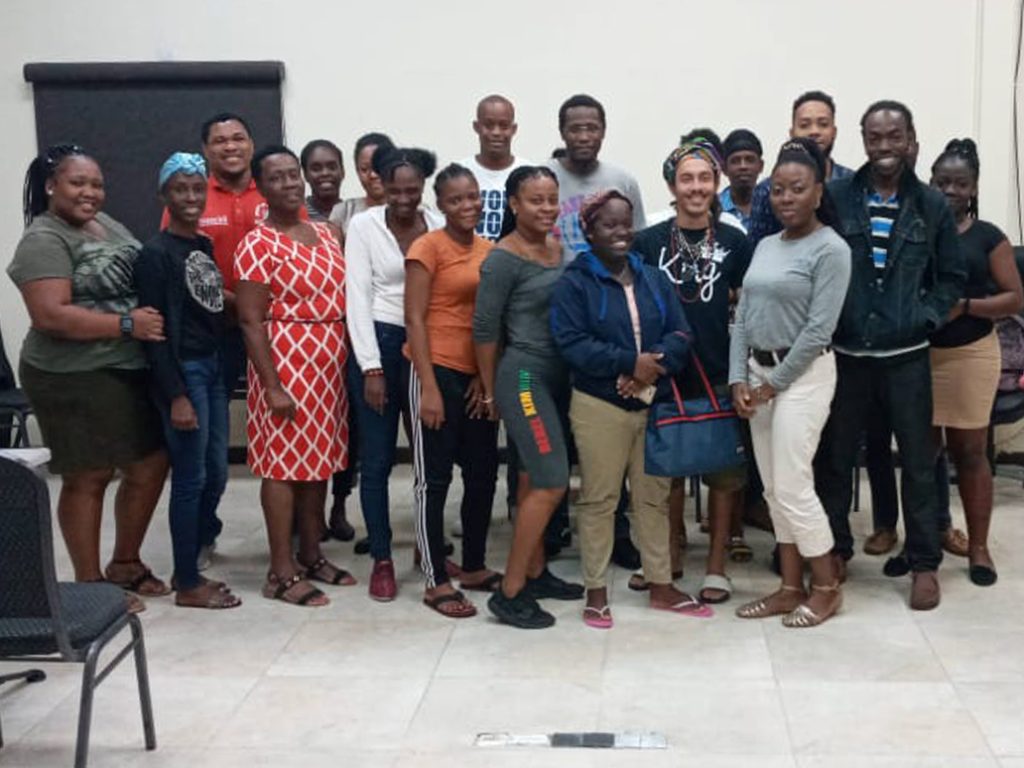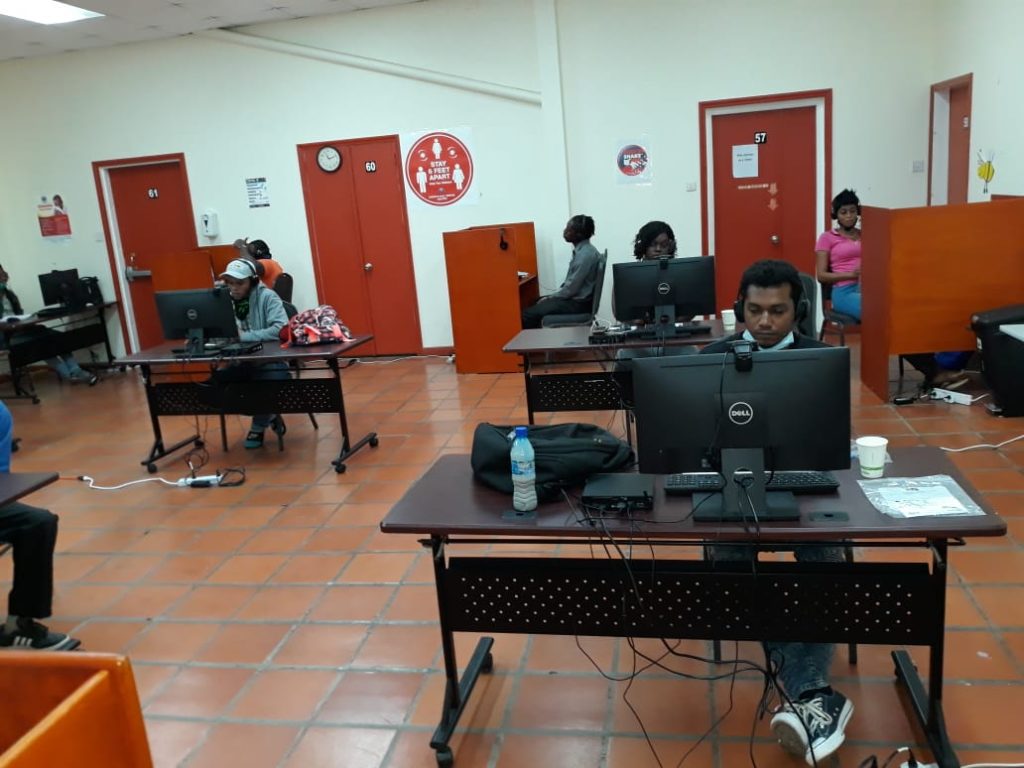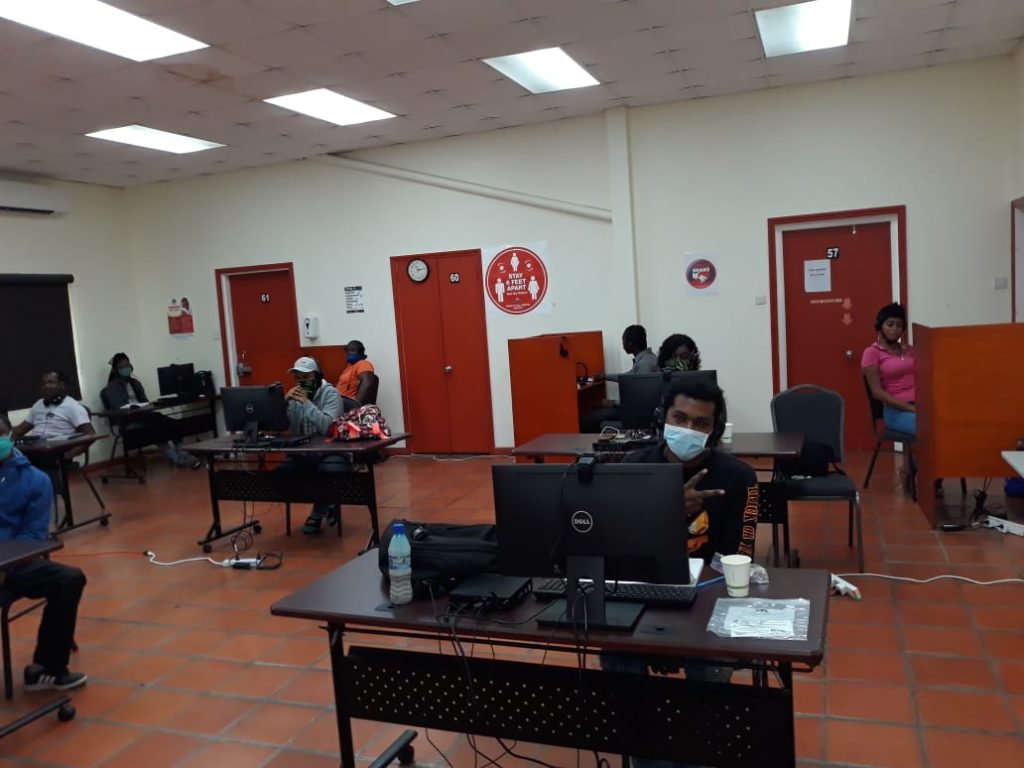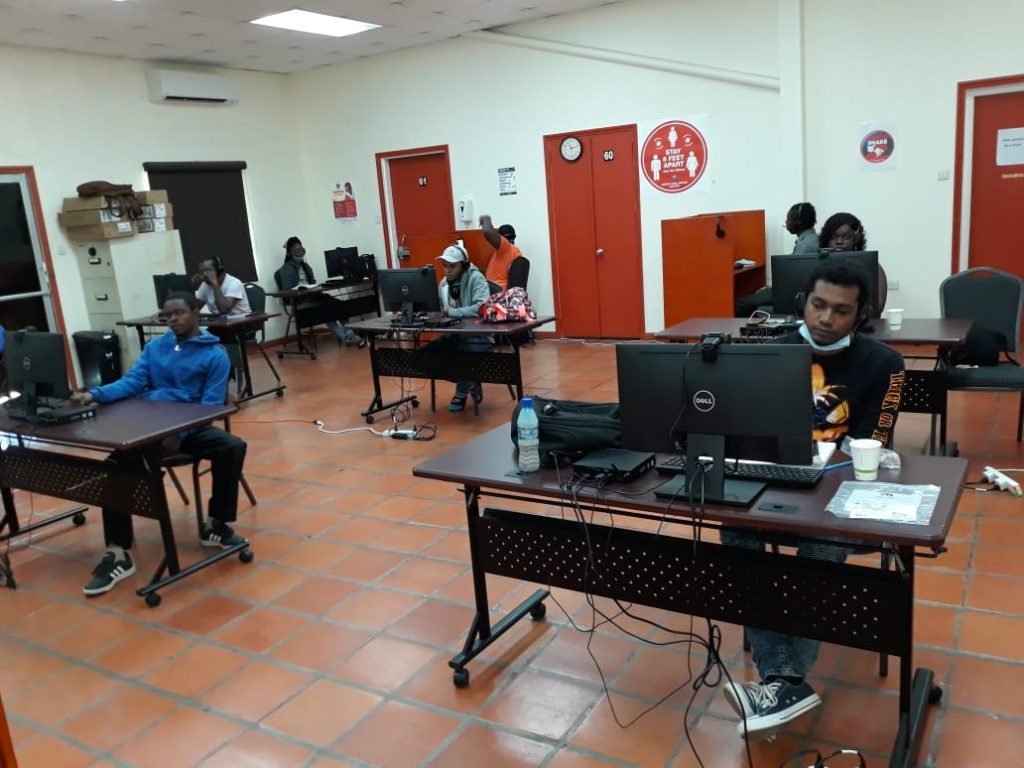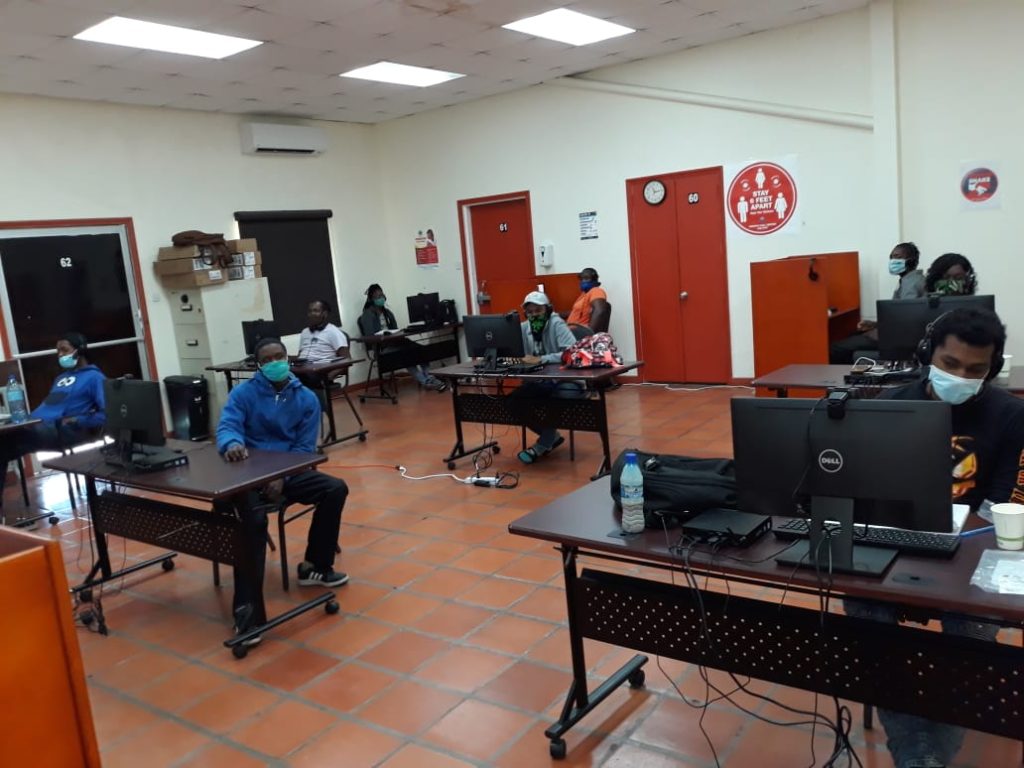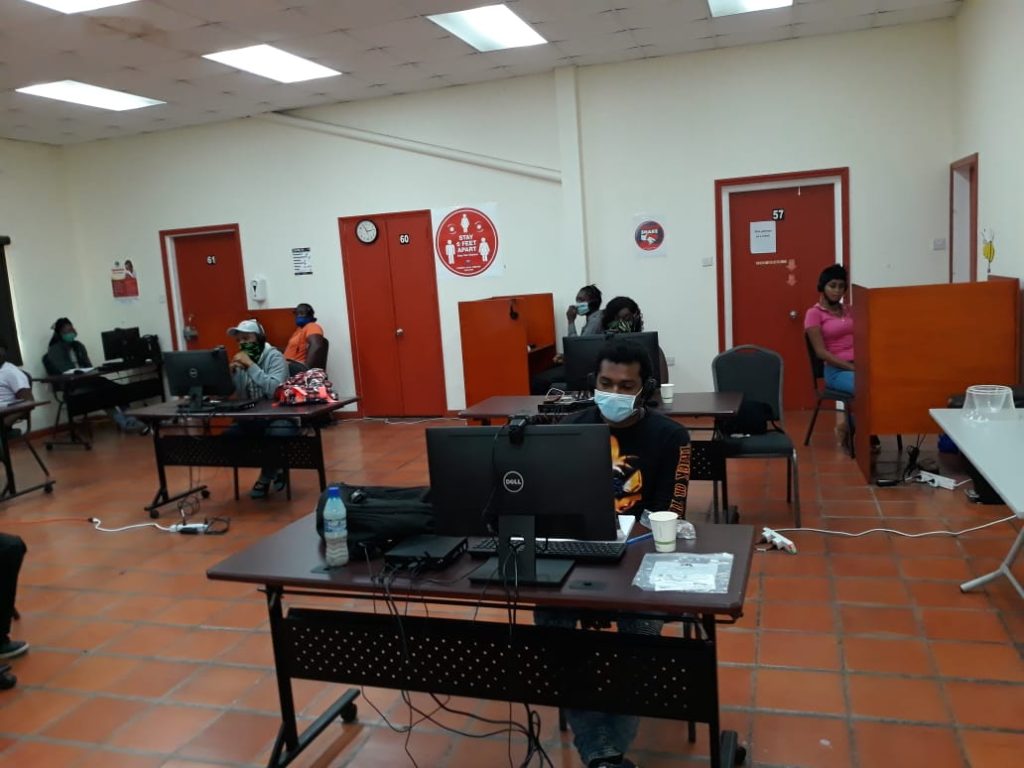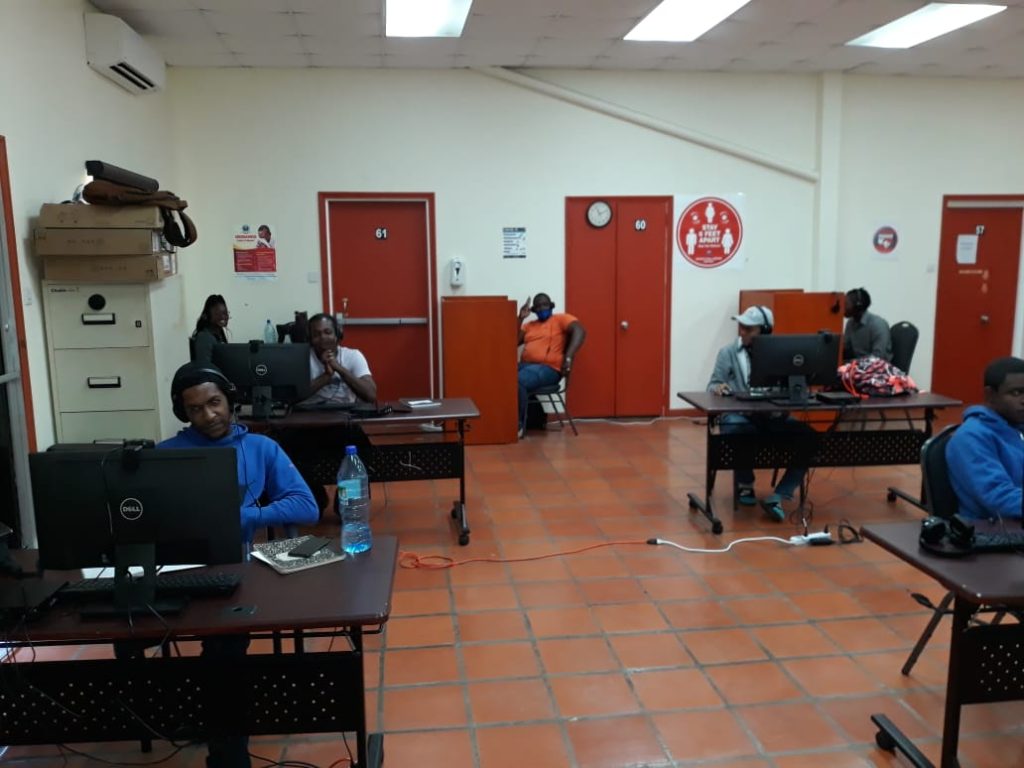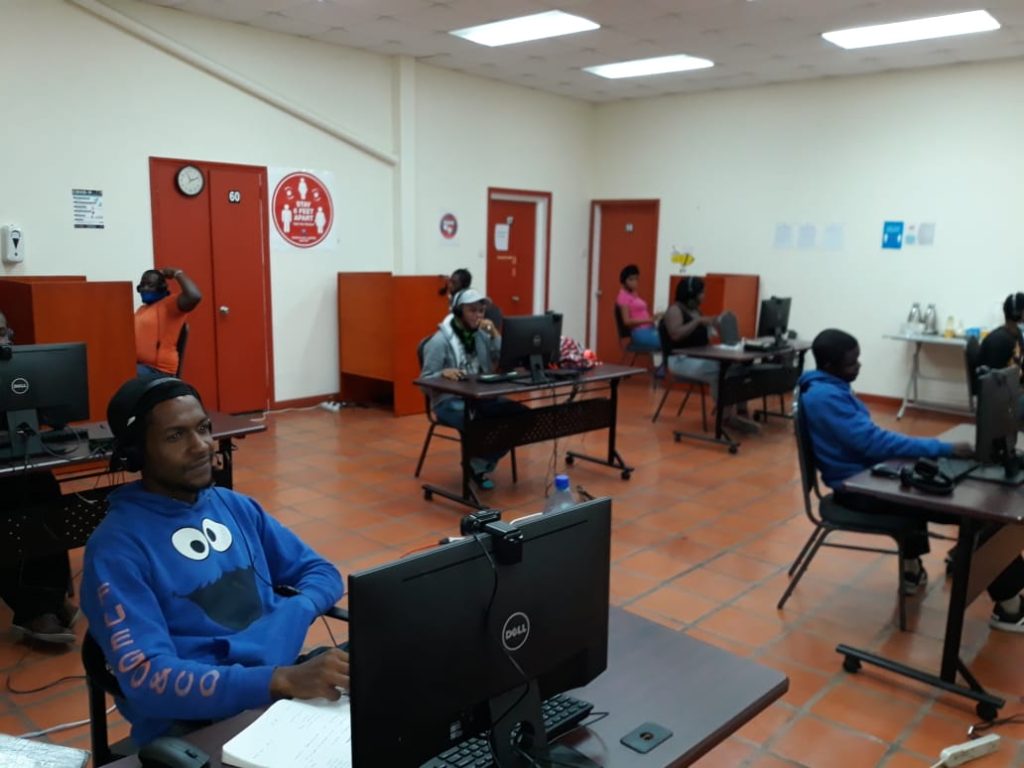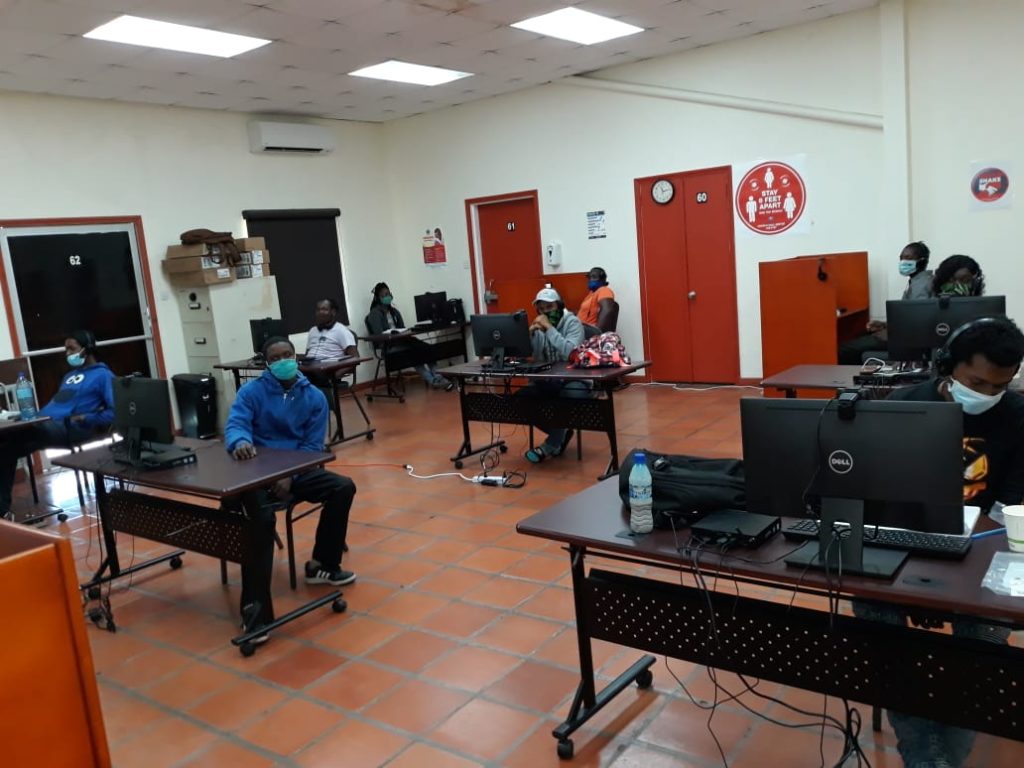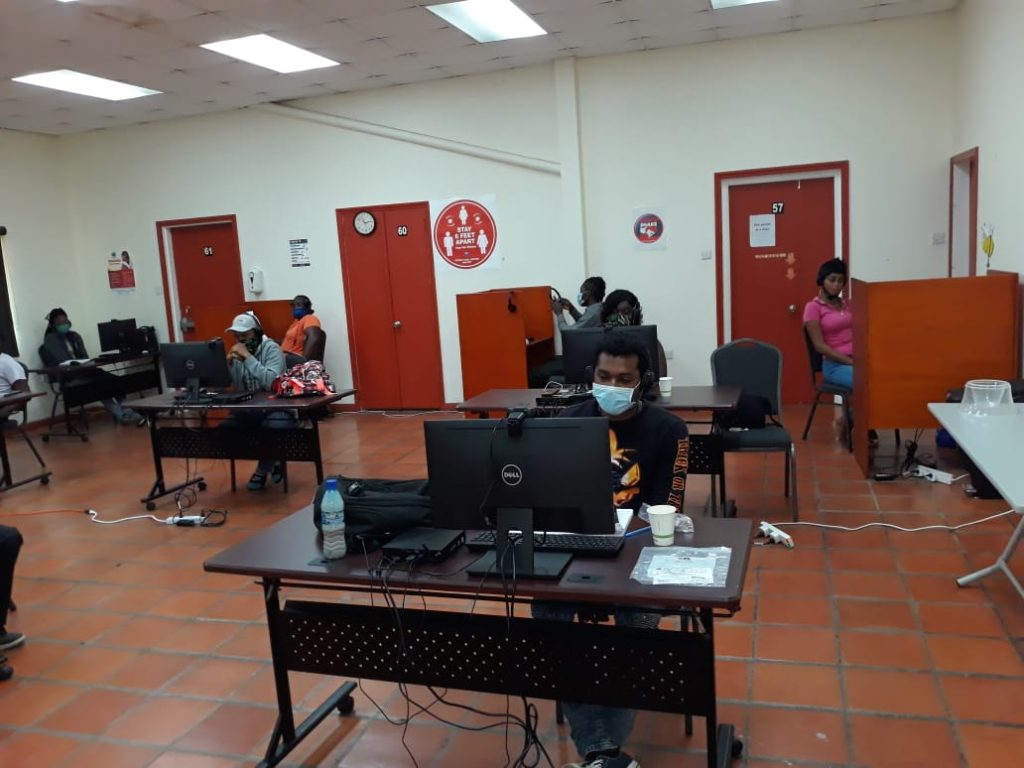The Enterprise Business Development implemented by the Grenada Investment Development Corporation (GIDC) is a component of the Climate Smart Agriculture and Rural Enterprise Programme.
Projects
Enterprise Business Development - Climate Smart Agriculture and Rural Enterprise Programme (SAEP)
In 2018, the GIDC signed a Memorandum of Understanding (MOU) with the Government of Grenada through the Ministry of Finance to implement the following activities under this component:
- Refurbish the GIDC administrative Building into a Training and Outreach Centre.
- Provide Entrepreneurial Training to 500 young unemployed/underemployed people between the ages of 16-35.
- Provide Grant Financing to 400 young unemployed/underemployed people between the ages of 16-35 who completed the Entrepreneurial Training.
- Provide technical assistance and training to 150 existing business owners operating for at least 3 years.
Staff:
- 1 Project Coordinator 3 Business
- Development Officers (BDOs)
Core Sections
The Programme will support the implementation of the most innovative and potentially profitable proposals with small grants to test the feasibility of business ideas. Thereafter, the successfully tested business ideas will become a reality through the development of a business plan to access further financing to execute the business efficiently and effectively. Four hundred (400) young people will have the opportunity to access the test grant.
The two types of grants are:
- First Push or Test Grant- The aim is to finance short-term objectives (activities that are practical and yield the desired result e.g., booth space, product testing etc.) towards implementing a business venture. Individual per initiative: $2,688.20 XCD ($1,000 US); Group Proposals $6,720.50 XCD ($2,500 US); Each beneficiary must contribute 5% in cash or in kind.
- Business Grant – This grant is to finance the long-term objectives of the business venture. Individuals can access up to $25,000 XCD ($9,300 US) per initiative; The grant amount for groups is a maximum of $80,6464.00 XCD ($30,000 US). Each beneficiary will be required to contribute10% of the grant amount (5% in cash and 5% in-kind).
NB: Although the grant ceiling is $80,646.00XCD; to access financing, the maximum individual limit per initiative of $25,000 XCD is multiplied by the number of people in a group hence groups can only access up to 75, 000 XCD. Funds will be disbursed directly to the input supplier.
An existing business is defined as, based on the project, a business that has been in operation for at least three (3) years and fits within the category of a Micro, Small and Medium-sized Enterprises (MSMEs) will be provided with technical assistance, training and handholding support.
Businesses are categorised as such:
- Micro – has less than five (5) employees with an annual turnover of less than EC$100,000
- Small – has less than fifteen (15) employees with an annual turnover of less than EC$500,000
- Medium – has sixteen (16) to fifty (50) employees with an annual turnover of less than EC$2 million
Technical Assistance covers any non-financial assistance provided to MSMEs to support business growth and expansion. Handholding Support involves nurturing the growth and development of MSMEs through direct interventions for a period of two (2) to three (3) years until the business reaches self-sufficiency or sustainable levels where the support is no longer required.
The Training and Outreach Center is located at Seamoon, St Andrew. The refurbishment of the building was completed on September 30, 2019. The building was refurbished to accommodate two training rooms, offices for the Project Coordinator and three BDOs, a lunchroom and a kitchenette, as well as toilet areas.
Selected beneficiaries’ must participate in Entrepreneurial Skills Training which involves workshops such as Life Skills, Basic Numeracy & Literacy, Information and Communication Technology (ICT), Entrepreneurial Skills Development, Grant Proposal Writing, Record Keeping.
Eligibility Criteria
- Have a commercially viable business
- Be either registered or incorporated or be willing to register the business name
- Be operating in the priority sectors as listed below
- Be registered with the Inland Revenue Division where applicable
- Be registered with the National Insurance Scheme
- Have financial records for at least two (2) years
Selection Criteria
- Be established and operating for at least three (3) years
- Consent to a business diagnosis/operational audit
- Be in good standing or have satisfactory arrangements for payment of financial obligations that directly affect the operations of the business e.g. taxes, licenses, permits etc.
Services
Training
Technical Assistance
Handholding Support for 2-3 Years
Priority Sectors
Selected MSMEs should be in the following priority sectors though not limited to:
Manufacturing
Tourism
Energy
Health & Wellness
Information Communication Technology
Agri-Business
Fishing
Farming
